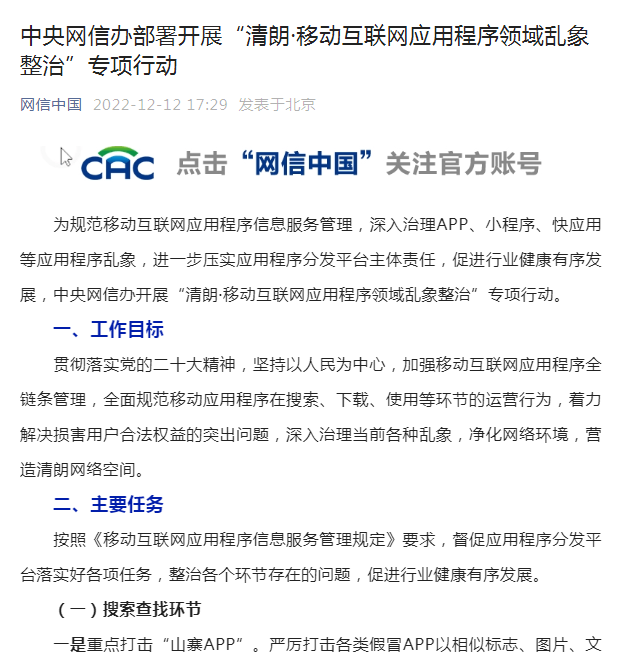足球历史杂志·美国人管足球叫soccer?你知道它是怎么来的吗?
THE ORIGINS OF THE WORD SOCCER
“SOCCER”一词探源
原文发表机构:SoccerHistory

南威尔士每日新闻,1891年1月29日
“Surely, soccer’s the American word for football”, is a view commonly expressed by many followers of the game. But, as we shall see, it is a British English word with a history almost as old as that of ‘association football’, from which it derives. In this article I shall consider the origins of the word ‘soccer’ and when it came into use.
“在美式英语中,soccer就是足球的意思”,这是广大足球爱好者普遍认同的观点。但是,据我们考证,soccer是一个英式英语的词汇,而且它的历史与现代足球几乎一样久远,现代足球在英语中称为“association football”,意即协会足球,soccer一词就源于此。在本文中我们将探讨soccer一词的起源以及何时被使用起来。
Newspaper reports from the 1890s provide clear evidence that ‘soccer’ was in common usage from the middle of that decade and that its origins were in the slang developed by students at Oxford University. In what was almost certainly a syndicated column, ‘Notes from Oxford,’ the North Wales Chronicle for 14 March 1891 reported: “Oxford undergraduates, especially those who are athletes, have passionate fondness for the termination ‘er.’ The number of coined words which are made to end in the termination ‘er’ is quite astounding, and these are absolutely unknown outside the Oxford circle. The following are fair examples, which are added to tickle the reader’s ingenuity: what does he think of: - ragger, fogger, roller, footer, rugger, brecker, soccer, fresher, &c.?”
根据1890年代的报纸报道提供的证据,soccer在这一时期的中段被普遍使用,最早是从牛津大学学生的俚语中发展而来。在《(北威尔士编年史》(North Wales Chronicle)杂志1891年3月14日“牛津消息”专栏(几乎可以确认是专栏)上曾有如下报道:“牛津大学生,尤其是那些运动员学生,尤其喜爱单词后面加‘er’。他们创造的以‘er’结尾的新词数量令人吃惊,而且在牛津之外肯定还有未计算在内的。下面的词就是很好的例子,可以让读者一窥其一二:ragger, fogger, roller, footer, rugger, brecker, soccer, fresher……
Towards the end of the 1890s the Football Echoes column of the Yorkshire Evening Post (23 September 1899) informed its readers: “It will perhaps interest readers of these Echoes to know why Association and Rugby football are commonly known as ‘Soccer’ and ‘Rugger’ respectively. At the Universities it is the correct slang to break off the latter syllables of words, double the last consonant, and ad ‘er.’ So ‘Sociation becomes ‘Soccer’ and Rugby ‘Rugger.’ But the former is more frequently spelt ‘Socker.’”
到了1890年代末,约克郡晚邮报(Yorkshire Evening Post)的“足球回声”专栏上写道(1899年):“可能本专栏的读者有兴趣了解为什么英式足球和橄榄球分别被称为Soccer和Rugger。在大学里,人们常常在俚语中把词汇里后面的音节砍掉,把最后一个辅音变成两个,再加上‘er’,于是Sociation就变成了Soccer,Rugby(橄榄球)就变成了Rugger。只不过这种形式往往被拼写成‘Socker’。”
So ‘soccer’, like ‘rugger’ and ‘fresher’ (a word meaning ‘freshman’ or recently arrived student) are words that all entered into widespread usage after being adopted by students at Oxford University. Another sporting word ‘cricker’ for cricket appears to have never featured outside of the slang used in public schools and universities of the late 19th century.
所以,同Rugger和fresher(大学新生的意思,源于freshman一词)一样,“soccer”也是在经过牛津大学学生修改过后才广为使用的词汇。另一个体育词汇“cricker’来源于crecket(板球)也在19世纪的公学和大学俚语中使用,只不过从来没有向外传播。
These words can be traced back even further, to Harrow School. An article in The Globe (22 October 1895) informs us: “The extensive use of the termination ‘er’ is now nearly twenty years old, though, circ. ann., 1875-6 it was confined to certain colleges, especially where Harrow men were in the ascendant. For the suffix ‘er,’ as the editor of ‘Isis’ [an Oxford University journal] correctly observes, hails from Harrow, the parent terms being ‘ducker’ and ‘footer.’”
这些词汇的源头甚至可以追溯到更久远的哈罗公学(Harrow School)。《环球报》(The Globe,1895年10月22日)上刊载的一篇文章说:“以‘er’作为词尾的方式被广泛应用已经有20年之久了,尽管在1875-6年左右它仅仅局限于特定的学院里,尤其是那些有哈罗公学背景的学生占多数的。”牛津大学刊物《Isis》编辑认为,“er”词尾来自于哈罗公学,最早见于“footer”和“ducker”。
The online version of the Oxford English Dictionary (www.oed.com) provides us with examples of the first occasions some of these slang words appeared in print: ‘footer’ (1863), ‘fresher’ (1882), ‘socker’ (1885), ‘rugger’ (1889) and ‘brekker’ [breakfast] (1889).
牛津英语词典的在线版本(www.oed.com)为我们提供了上述某些俚语词汇最早印刷版本的例子:“footer”(1863),“fresher”(1882),“socker”(1885),“rugger”(1889)以及“brekker”[breakfast,早餐] (1889)。
Finally our investigation concludes with a brief review of the contents of the British newspaper Archive. The Optical Character Recognition system offers little help with tracing the earliest usage of ‘soccer’ simply because the presence of ‘soccer’ often appears in print as ‘success’ (or other words). ‘Socker’ is an easier term to search and to date the earliest reference I have traced is from The Star of the East, a Suffolk title, for 12 March 1888. Commenting on the Suffolk Cup final which took place at Ipswich’s Portman Road ground ‘Asterisk’ reported “Many ‘Rugger’ men went home this afternoon with a respect for ‘Socker’ that they had never felt before.” This, significantly, is an earlier reference to the use of ‘rugger’ than currently held by the OED. Note that ‘Socker’ was the original spelling. Almost all late 19th century references were found in one of three geographical regions: South West England (mostly Cornwall), South Wales and London (where most occur in relation university students at Oxford and Cambridge).
我们的调查最终落脚在对英国报纸档案的简要研究。光学字符识别系统在查找“soccer”一词的最早使用上没有起到太大作用,原因很简单,“soccer"在印刷品上的形象往往和“success”(或其它形式)相像而无法区分。“Socker”是一个更容易检索的词汇,笔者能查到的最早的使用是在1888年3月12日萨福克出版物《东方之星》(Star of the East)上。这篇文章评论了萨福克地区杯赛决赛的情况。比赛在伊普斯维奇的波特曼路足球场举行,文章中着重强调很多橄榄球(rugger)爱好者在比赛后赞叹他们从来没有见识过这样的足球(socker)。尤为重要的是,这篇文章中“rugger”的出现甚至早于目前牛津英语词典的考证结果,而且我们注意到此处的“Socker”使用的也是原始拼写。此外在19世纪后期所有的使用都出现在以下三个地区之一的文字中:西南英格兰(主要是康威尔),南威尔士和伦敦(与牛津和剑桥大学学生关系密切的地区)。

More specific searches produce a clearer picture. The Cornishman newspaper provides 12 references for ‘socker’ for 1893, but just one for 1895; in contrast there are no references to ‘soccer’ for 1893 and 17 for 1895. Thereafter ‘soccer’ is the preferred term. The British Newspaper Archive has a gap in its coverage of Athletic News, the main football (both rugby and association) newspaper of the time, between 1887 and 1899 unfortunately. For 1899 the term ‘socker’ is used 21 times and ‘soccer’ just once. From around 1903, however, ‘socker’ is rarely found and ‘soccer’ becomes the recognised spelling. ‘Footer,’ which must originally have referred to the specific game played at Harrow, later became a term to describe football generally and is the preferred informal term of Sporting Life newspaper in the mid 1890s, although ‘socker’ / ‘soccer’ and ‘rugger’ are also found.
通过更为具体的检索,我们看到了更清晰的证据。1893年《康威尔人》报中有12次使用了“socker”,但在1895年仅有一次。与之相反的是,该报纸1893年没有使用“soccer”一词,但在1895年却使用了17次。从那以后,“soccer”变得更受欢迎。很不幸,英国报刊档案在1887年到1899年间《体育新闻》以及主要的足球(包括橄榄球和协会足球)的报纸都缺失了。1899年,“socker”一词使用了21次而“soccer”只有一次。从大约1903年开始,“socker”几乎绝迹而“soccer”成为被认可的拼写。“Footer”一词最早指的是哈罗公学里面的一种游戏,此后泛指足球,在1890年代的《体育生活》报上,“footer”是该刊的正式用词,尽管“socker”/“soccer”和“rugger”也不时出现。

In conclusion, we can identify that the first slang word still in modern use for football/soccer derives from Harrow School with the usage of the word ‘footer’ which first appears in print in 1863. The practise of shortening words, particularly in relation to athletic sports, then adding an ‘er’ suffix appears to have transferred from Harrow to Oxford University in the mid 1870s. Almost certainly words such as ‘socker’ and ‘rugger’ were in use before they were committed to print a decade later. The word ‘soccer’ was initially spelt ‘socker’ and as well as being in use amongst university students it was commonly used in geographical areas where the predominant code of football was rugby union (Cornwall, South Wales) in the 1890s. A spelling of ‘soccer’ rather than ‘socker’ became the recognised version of the word by the early 20th century and this word then spread into the general vocabulary of the game. Soccer has remained in the vocabulary of British football, and indeed, when the Players’ Union relaunched their magazine was titled: ‘Soccer: The Official Journal of the Football Players’ Union’. Soccer Star was for many years the most popular British weekly magazine devoted to the association game, and ran from 1952 until 1970.
总之,我们可以确认现代仍在使用的football/soccer一词源于哈罗公学,最早是以俚语存在的,而“footer”一词最早于1863年出现在印刷品上。到了1870年代中期,把词汇尤其是体育词汇缩短化,加以“er”后缀的做法自哈罗公学传到了牛津大学。几乎可以确认的是像“socker”和“rugger”这样的词汇在之前就已经有人在使用,不过付诸印刷还是在10年后的时期。“soccer”一词最早的拼写为“socker”而且在1890年代在橄榄球规则主导的地区(康威尔,南威尔士)的大学生中被广泛使用。在20世纪初“soccer”取代“socker”成为广为承认的拼写版本并逐渐成为这项运动的通用词汇。Soccer现在仍然是英国足球词典中的一员,球员工会重新启动他们的杂志时也将其命名为“Soccer:球员工会官方杂志”。,《Soccer Star》(足球明星)在1952年-1970年间发行,也曾经是多年来在英国最受欢迎的周刊足球杂志。
So ‘soccer’ is a word that derives from the elite classes of Oxford University students in the last quarter of the nineteenth century. It is perhaps not surprising that ‘soccer’ is used instead of ‘football’ in the United States where another version of football (‘American football’) enjoys greater popularity, and probably for the same reasons as those newspapers in Cornwall and South Wales used ‘soccer’ back in the 1890s. It distinguishes association football from other more popular codes of the game in those areas. Nevertheless ‘soccer’ remains a word of British English origin and not American English.
所以说,“soccer”一词起源于19世纪最后15年间的牛津大学学生中的精英阶层。所以说在美国人们把足球称为“soccer”并不奇怪,因为在那里美式足球(“American football”)更受欢迎,而且或许他们使用“soccer”一词的原因和当年在1890年代康威尔和南威尔士报纸的初衷是一致的,就是要让英式足球规则和当地更为盛行的足球规则区分开来。但无议论如何,“soccer”都是一个英式英语词汇而非美式英语词汇。
原文来源:
http://www.soccer-history.co.uk/latest-news-events/143-origins-of-the-word-soccer












